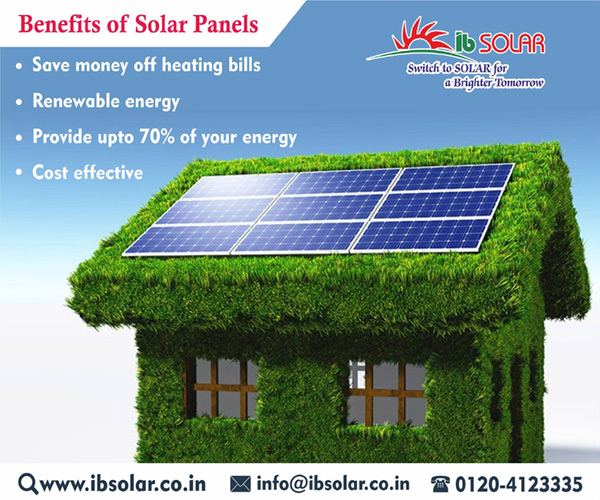How Solar Power Can Assist You Save Cash and Decrease Your Carbon Footprint
The integration of solar power right into your energy profile offers an engaging opportunity for both financial cost savings and ecological stewardship. As various federal government incentives end up being offered, the concern develops: how can one efficiently navigate the first financial investments and ongoing advantages of solar modern technology to optimize both financial and environmental gains?
Recognizing Solar Power Cost Savings
While the transition to solar power usually includes a preliminary financial investment, recognizing solar power savings is critical for homeowners and companies alike. Solar power systems can dramatically lower electrical power expenses by harnessing the sun's power, translating into significant lasting monetary benefits. By generating their own electrical power, customers decrease dependence on grid power, which undergoes varying costs. These financial savings can accumulate with time, usually causing a quick roi.
Moreover, solar power systems might get various economic incentives, including tax credit scores and rebates, further boosting their cost-effectiveness. The accessibility of internet metering permits individuals to offer excess energy back to the grid, creating an added revenue stream. These elements contribute to the overall cost savings associated with solar power.

In enhancement to guide monetary cost savings, solar power offers the added advantage of raising residential or commercial property worth. Houses equipped with solar panels are typically extra appealing to purchasers, as they promise reduced energy expenses - Simply Solar Illinois. Comprehending these components is crucial for any individual considering solar energy, as it highlights not just the possible economic gains, yet additionally the more comprehensive environmental and financial advantages of adopting renewable resource solutions
Initial Prices vs. Long-Term Perks
When evaluating solar energy, it is very important to consider the preliminary expenses versus the lasting benefits. The ahead of time financial investment for photovoltaic panels, installment, and associated devices can be considerable, often ranging from $15,000 to $30,000, relying on the system size and home power demands. This initial expense may prevent some homeowners; however, it is vital to consider the prospective cost savings over time.
When set up, solar power systems can significantly decrease or also eliminate regular monthly electricity expenses, causing significant long-term financial benefits. Research studies indicate that property owners can save anywhere from $10,000 to $30,000 over the life-span of their solar system, generally 25 years. Additionally, numerous states offer motivations, tax credit histories, and rebates that can offset preliminary costs, making solar more easily accessible.

Decreasing Your Carbon Impact
Minimizing your carbon footprint is an essential consideration in today's ecologically conscious culture, and taking on solar energy is just one of the most effective techniques to achieve this objective. Solar energy is a clean, sustainable resource that significantly decreases dependence on nonrenewable fuel sources, which are significant contributors to greenhouse gas exhausts.

Additionally, the widespread adoption of solar modern technology encourages the advancement of environment-friendly work and supports technologies in power storage and effectiveness. The more people and organizations purchase solar energy, the greater the collective reduction in carbon exhausts, fostering a cleaner ambience for future generations.
Government Rewards and Discounts
Adopting solar power not just benefits the atmosphere however can additionally result in substantial financial savings, particularly with the schedule of government rewards and refunds. Numerous federal, state, and local programs are created to urge property owners and organizations to buy solar power systems, making the change more economical.
Among one of the most prominent incentives is the Federal Investment Tax Obligation Credit History (ITC), which permits solar system owners to deduct a significant portion of the installment prices from their federal taxes. This reward has been critical in decreasing the in advance costs connected with solar power systems. In addition, numerous states provide their own tax credit reports, grants, and refunds that can better improve cost savings.
Moreover, some neighborhood governments offer real estate tax exemptions for solar installments, making certain that house owners do not encounter raised real estate tax as an outcome of their renewable resource financial investments. Energy firms might additionally offer rewards, consisting of net metering and feed-in tolls, which enable wikipedia reference solar power customers to sell excess power back to the grid.
Selecting the Right Planetary System
Choosing the ideal planetary system is critical for making the most of power performance and economic benefits. The choice hinges on a number of variables, consisting of power needs, budget plan, and available room. Property owners need to start by analyzing their electrical energy usage to identify the system dimension required for optimal performance.
Following, think about the different continue reading this types of solar modern technologies readily available. Simply Solar Illinois. Solar (PV) panels are one of the most usual, converting sunshine straight right into electrical power, while solar thermal systems focus on heating water. Each kind has unique advantages depending upon specific demands
Budget plan factors to consider are additionally extremely important. First installation costs can vary significantly, so it is very important to compare quotes from several carriers and discover financing options. Federal government incentives and refunds can better decrease the financial problem, making planetary systems a lot more obtainable.
Conclusion
The environmental benefits of solar power contribute to lasting methods critical for combating environment adjustment. Federal government incentives enhance the expediency of solar innovation fostering, motivating a shift in the direction of a cleaner, extra economically efficient energy source.